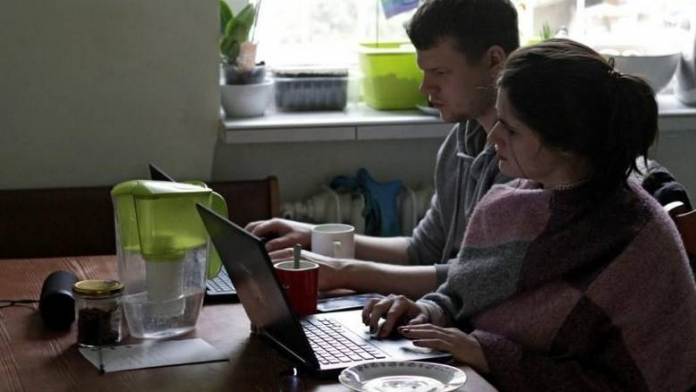UAE has given equal importance to ensure continuous education as students, teacher adopt remote learning
Our world has changed over the last couple of months and in an effort to keep the wheels turning, companies across the UAE and wider Middle East and Africa are switching to remote work. Employees are using tools to collaborate, chat, and connect in new ways to try to keep their businesses moving forward amidst the challenging global health crisis.
The UAE has given equal importance to ensure continuous education as students, teacher adopt remote learning. Such transitions of data being shared, one should ensure navigation through such times by prioritising security for users.
Protecting your data, privacy and networks is another challenge that we are constantly engaged with. Microsoft analyses eight trillion signals a day in order to identify emerging threats and protect users from any potential malicious activity. Internet of Things spending in the region is expected to reach $17.63 billion by 2023. At the same time, research shows most organisations in the Middle East are either using cloud computing services or plan to do so in the next two years. Indeed, the proliferation of connected devices and cloud-based services has opened new venues of attack for cybercriminals and other malicious actors.
With more of us going online via our home networks to work, do online banking, grocery shopping or even catch up with family members at a distance, cyber-riminals will be looking for weaknesses to exploit. While we’re always on the lookout for these threats to your security, we still need your help to stay on top of our game.
Let’s practice good cybersecurity hygiene
Remote collaboration enables access to data, information and the network, which increases temptations for bad actors. In recent months, we’ve all had to rethink everyday hygiene like washing our hands and cleaning the surfaces we touch. Working securely from home should be no different. Much like how governments are asking us to make small changes while they consider the bigger ones, we want you to do the same when it comes to cybersecurity at home while we keep you protected.
Be e-mail savvy
A good place to start when it comes to cybersecurity hygiene is with email. Did you know that 91 per cent of cyberattacks start with email? To help protect you, a multi-layered defence system that includes machine learning, detonation and signal-sharing to quickly find and shut down e-mail attacks is at your diposal. If any of these mechanisms detect a malicious e-mail, URL, or attachment, the message is blocked from your inbox before it’s opened by our secure and isolated machines. It’s then analysed to give our developers additional insights and train machine learning models.
Stay updated
One of the easiest ways you can help us keep your devices safe is to update the device software regularly. Updates are important for maintaining your device’s software to ensure it continues to run efficiently and helps keep you protected. During the update process, the latest security patches are installed to the operating system and other programs to strengthen your device against cyberattacks. Antivirus updates are also critical to making sure your device has the latest protection when it comes to virus and malware attacks. However, no matter which antivirus software you have, you will need to update this on a regular basis. The easiest way to do that is to set up automatic updates to download when you’re taking a break or at the end of a work day.
Applying sensitivity labeling to protect sensitive data
You can also apply a sensitivity label to important documents and associate it with protection policies and actions like encryption, visual marking, and access controls and be assured that the protection will persist with the document throughout its lifecycle, as it is shared among users who are internal or external to your organisation. You can start by allowing users to manually classify e-mails and documents by applying sensitivity labels based on their assessment of the content and their interpretation of the organisational guidelines. However, users also forget or inaccurately apply labels, especially in these stressful times, so you need a method that will scale to the vast amount of data you have.
Always have a backup
Protect your data with regular backups. If by chance a virus does slip through and corrupts your data, a recent backup can be a real lifesaver. At the very least, try to save files that you can’t afford to lose, such as documents, pictures, financial information, favourite links, contacts, and important e-mails.
Much like how we have changed our hand washing routine, our sneezing into the crook of our elbows and keeping a safe distance from others to prevent risk, the same applies to cybersecurity. These small changes to your online habits keep our cybersecurity experts informed so that they can help prevent attacks on your devices and you can continue to work safely from home.
The writer is business group director for modern workplace and security at Microsoft UAE. Views expressed are his own and do not reflect the newspaper’s policy.




